Over Ancient Footpaths to Santiago de Compostela
Every year, tens of thousands of people lace up their shoes to cover hundreds to thousands of kilometers to the Spanish city of Santiago de Compostela. More and more people are walking along a Camino de Santiago from all corners of the world to the city's cathedral.
Santiago de Compostella
In northwestern Spain lies the world-famous pilgrimage site Santiago de Compostela. This city, with about 100,000 inhabitants, is named after Santiago, translated into English as Saint James. James the Greater was one of the twelve apostles of Jesus, and according to legend, is buried in Mount Libredón. Since 1077, a large cathedral has stood on his grave, attracting millions of visitors annually.
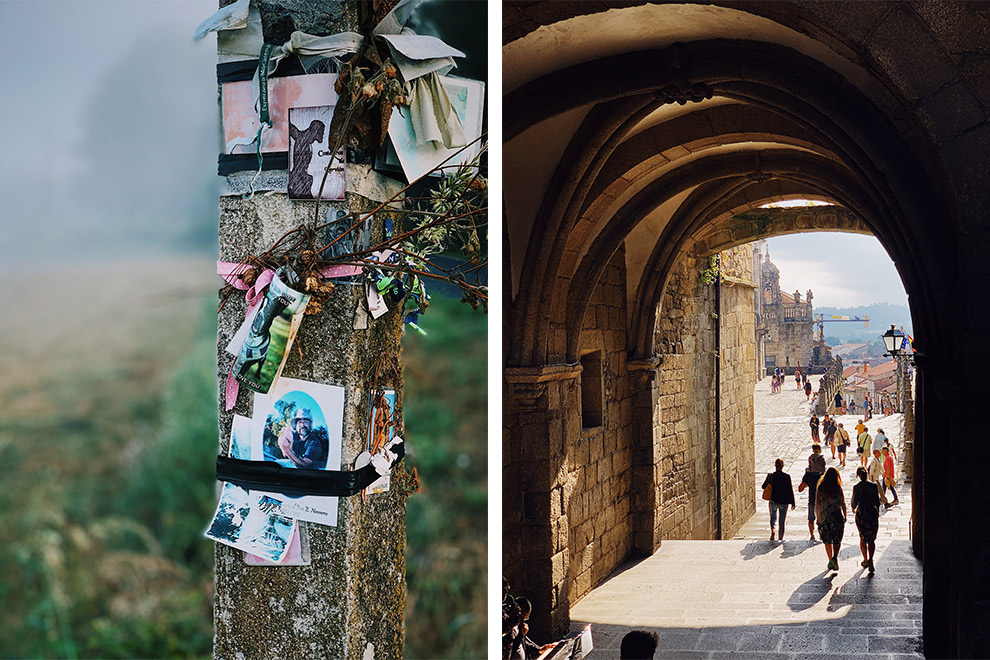
Photos: Jon Tyson/Unsplash
The cathedral of Santiago de Compostela has been one of Europe's most popular pilgrimage sites for many centuries. A Camino de Santiago is a pilgrimage route to the cathedral in the city. Routes originating from all corners of Europe, which have been traveled by pilgrims for thousands of years, lead to the holy city. Pilgrims were on the road for months to years, and some arrived in northern Spain by boat from Scandinavia or the United Kingdom. Nowadays, many non-religious hikers also walk hundreds of kilometers to Santiago.
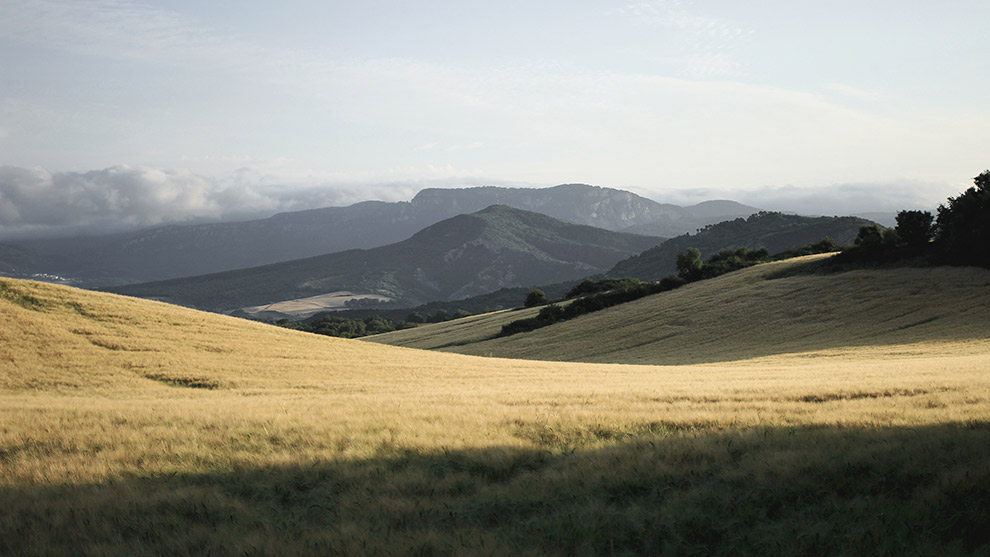
Photo: Damien Dufour Photographie/Unsplash
The Various Camino de Santiago Pilgrim Routes
In Spain, there are ten official Camino de Santiago walking routes, spread throughout the country like a star with Santiago as its center. The Camino del Norte comes from the far north of the country, the Camino Portugués comes from the south from the Spanish-Portuguese border. The most popular pilgrimage route to Santiago is the Camino Francés. More than half of the pilgrims start their pilgrimage through Spain at the border near the French Pyrenees. From there, it is a 780-kilometer walk to the cathedral in Santiago. Once arrived in Santiago, those who haven't had enough of walking yet can extend the route to Finisterre, also known as 'the end of the world'. Here, at the westernmost point of Galicia, Saint James is said to have come ashore before being buried in the mountain.
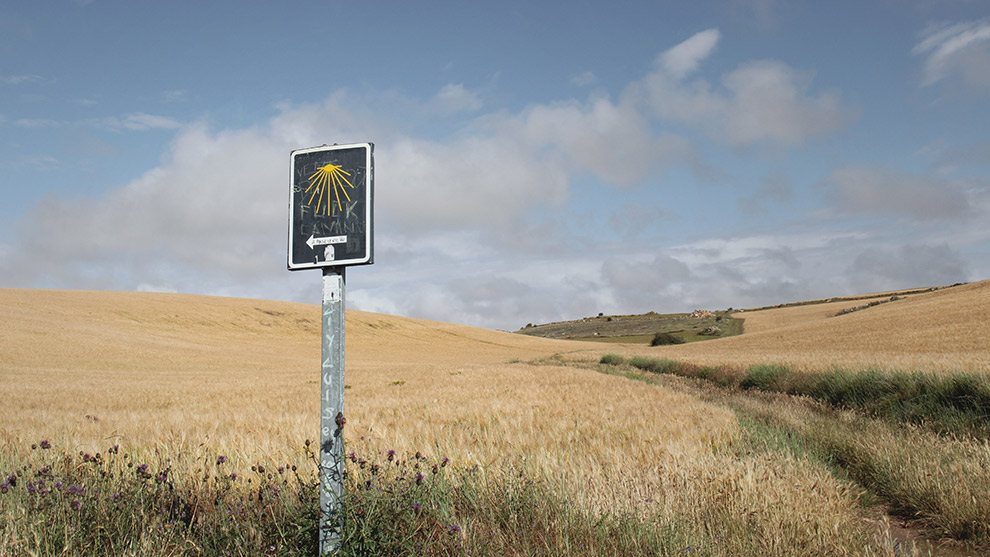
Photo: Damien Dufour Photographie/Unsplash
Walking with a Saint James Shell
All pilgrims on the Camino de Santiago purchase a pilgrim's passport at their starting point. Along the way, they collect stamps, which they can use in Santiago to prove that they have completed the entire pilgrimage route. Pilgrims to Santiago can also be recognized by a Saint James Shell. This shell, which grows on the coast near Santiago, is the symbol of Santiago de Compostela. The route marking consists of blue signs with a yellow shell. You may have encountered such a sign in the Netherlands. That's because from the Netherlands, you can follow Jacob's paths that eventually lead to Santiago. From almost every country, there is a pilgrimage route that connects to the official Caminos in Spain.
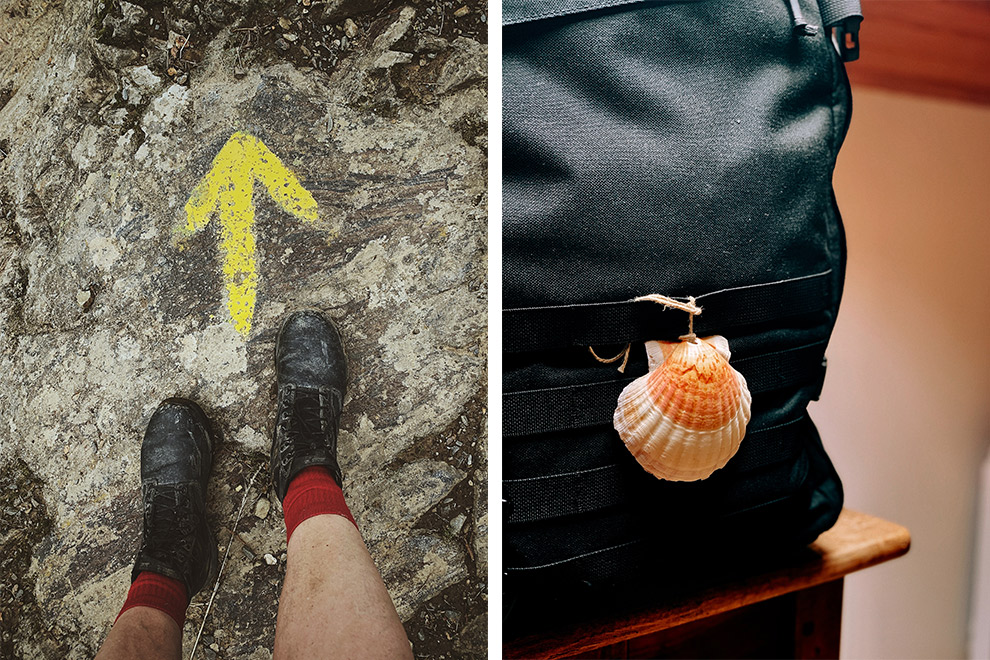
Photos: Jon Tyson/Unsplash
Reasons to Walk a Camino to Santiago
Why would someone voluntarily walk hundreds of kilometers to a city in the northwest of Spain? Everyone has their own reasons: some religious, others more personal. Many people who start a Camino feel somehow lost in their lives after, for example, losing loved ones or a job. Many modern pilgrims "find themselves"while they are slowly making their way to Santiago. It's not the destination that makes the journey so special, but the journey itself. Moving slowly through the Spanish landscape, you not only encounter other walkers but also frequently encounter yourself. On the route, you completely detach from busy daily life, because you only have to worry about walking, eating, and sleeping. Life in the Netherlands feels and is thousands of kilometers away, and that is both the charm and the challenge of such a pilgrimage. One thing all Camino walkers agree on: making a pilgrimage changes your life.
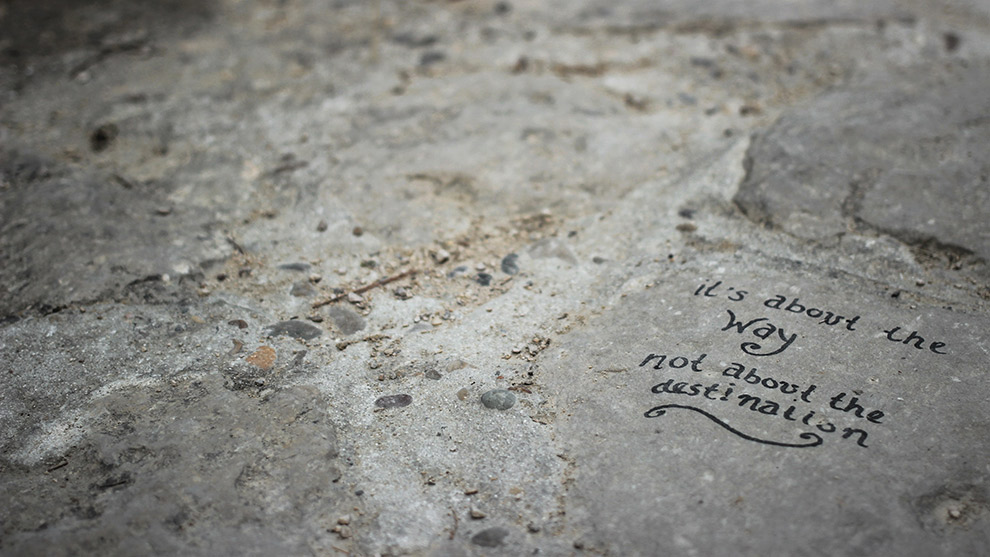
Photo: Damien Dufour Photographie/Unsplash
Ready to start your hiking journey prepared? Then check out the blog 'How to Prepare for an Adventurous Trekking Expedition'!
Create your own blog
Easily add stories to your diary in our online editor or app
Add your images and choose your pages layouts
Share your journey in real time without the fuss!





